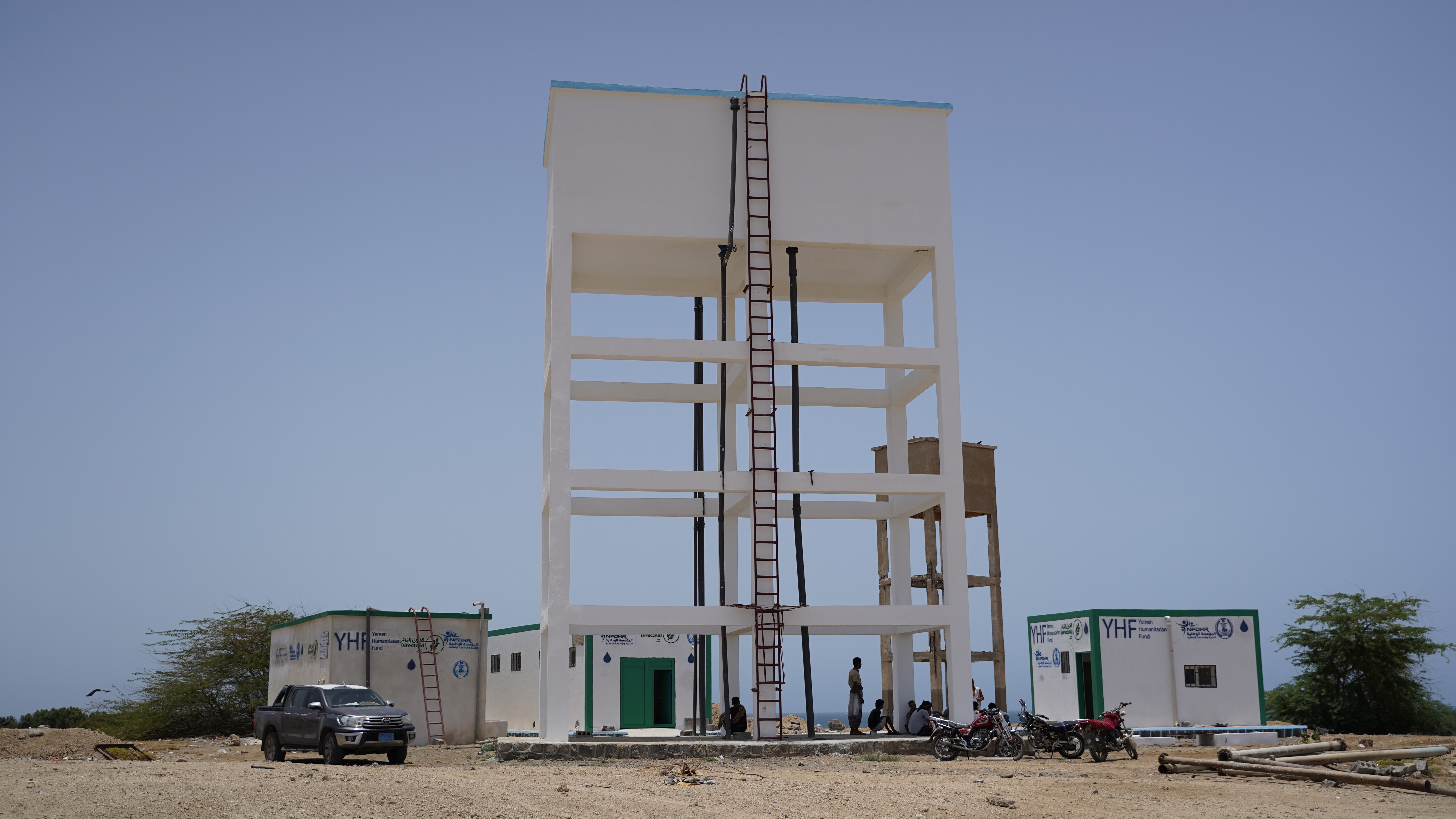Desalination of Ras Eisa Water Project Improves the Lives of Local Communities
NAHRThursday, 01 January, 1970

The water project in the Ras Eisa area of Hodeidah Governorate has been out of service for years due to the high concentration of dissolved salts, reaching about 39,000 mg/L, and the unacceptability of the water taste to the residents, which exacerbated their suffering in obtaining safe, clean, and potable water.
Water was supplied to the beneficiaries from the Al Arj water project in an attempt to alleviate their suffering due to the suspension of the Ras Eisa project, but it frequently stops working.
"Due to the repeated breakdowns, the long length of the network reaching about 40 kilometers, and the lack of maintenance of the Al Arj water project, residents were deprived of their water needs for periods of up to a week at a time until the breakdowns were repaired and water pumping resumed," said Abdullah Zeilai, head of the community committee for project management.
During the suspension of water pumping to the Ras Eisa project, residents resorted to the public fountain at the sugar factory to obtain drinking water, but it did not meet their daily needs.
The National Institution for Development and Humanitarian Response (NAHR) intervened to rehabilitate the Ras Eisa water project and solve the problem of the high concentration of salts, ensuring easy access to water for the beneficiaries.
With support from the Yemen Humanitarian Fund (YHF) and the Kuwaiti Aid Society, the organization rehabilitated a ground reservoir with a capacity of 170 cubic meters and another tower reservoir with a capacity of 120 cubic meters, the distribution network, constructed a pumping room and a guard room, and supplied a solar-powered pumping system. It also supplied a first-of-its-kind solar-powered desalination station to treat water and reduce the salt concentration, and trained the project management committee on project management, operation, and maintenance.
The project was restarted in early June 2024 with high efficiency after the completion of the installation of the desalination station, which operates at a production rate of up to 6,000 liters per hour. It also solved the problem of the high concentration of dissolved salts and contributed to reducing it to less than 900 mg/L of water, which is the safe level according to international standards.
Abdullah Zeilai confirms that the water problem in the area has been solved, and 3,384 beneficiaries can now obtain their water needs easily and without difficulty. Children will no longer leave their schools to fetch water for their families.
After the operation of the Ras Eisa water project, water reached the homes of the beneficiaries, and the solar pumping system also contributed to reducing operating costs, which had a positive impact on the communities benefiting from the project.
